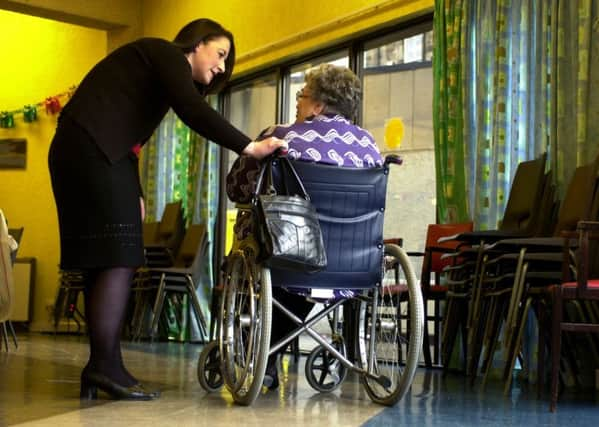YP Comment: Hunt is on for joined-up NHS and long-term remedy


Yet Mr Hunt’s stand-off with junior doctors masks the fact that most hospitals are now in a perpetual state of crisis because of the pressure on beds – a new report reveals that NHS trusts are £2.3bn in debt. It does not end here. Despite the Government fast-tracking an additional £10bn as part of the reforms being implemented by NHS chief executive Simon Stevens, the out-of-hours 111 service – intended to ease the pressure on hospitals – is at breaking point with allegations of staff falling asleep during their shifts because of pressure of work.
And then there is social care. Even though town halls have been given dispensation to raise council tax bills by two per cent in order to protect home visits to the elderly and so on, most believe that this represents little more than a sticking plaster solution.
Advertisement
Hide AdAdvertisement
Hide AdWhy does this matter? Instead of looking at these issues in isolation as the NHS’s management structure becomes more complex, there needs to be a realisation that the ability of hospitals to meet A&E and other performance targets depends on the elderly, and others with mobility issues, receiving sufficient support in their own homes – or the level of psychiatric care on offer in each area.
This is not a radical remedy. Quite the opposite. It’s called a joined-up NHS. As such, the more pertinent question is whether Mr Hunt is still the man to drive forward this agenda when he appears to be embattled on so many fronts. If not, it is in the interests of all patients for a Health Secretary to be appointed who can make sense of the Health Service’s finances and the crucial need to start planning for the long term today.
EU deal or no deal? PM’s two audiences on Europe
DAVID Cameron’s knife-edge negotiations with his EU counterparts need to be seen in this context. If the Prime Minister was holding a referendum on whether Britain should join the European Union super-state in its current form, the answer would be a resounding “no”. Given this, the Tory leader now needs to secure a deal in which he can demonstrate to the British people that the UK receives value for money for the £35.3m that it gives to Brussels bureaucrats each day.
What do taxpayers get in return? Does this country receive a fair deal? Would Britain be better off spending £12.9bn a year on its own political priorities – and fostering better trade links with the world’s emerging economies? These are the questions that households across Yorkshire are asking – questions that Mr Cameron, a lone voice, needs to reconcile as he prepares for the political equivalent of a trapeze artist’s high-wire act as he attempts to satisfy his audiences in both the UK and the EU.
Advertisement
Hide AdAdvertisement
Hide AdYet, while Germany’s leader Angela Merkel has now said that many of Mr Cameron’s demands are justified, the fact of the matter is that many people don’t think the PM’s agenda went far enough – and they remain disappointed that other European leaders have not backed Britain’s calls for reform. As such, this will be a summit like no other – one which will define the Tory leader’s career. The stakes are that high.
Falklands factor: Michael Fallon embroiled in war of words
THE SYMBOLISm was striking as Michael Fallon became the first Defence Secretary in more than a decade to visit the Falklands and pay his respects to the 255 UK service personnel who paid with their lives in the 1982 conflict.
The purpose of Mr Fallon’s visit was two-fold. After pledging a further £180m to protect the Falklands over the next decade, the Cabinet minister took the opportunity to claim that it is Jeremy Corbyn, and not Argentina, who poses the greatest threat to the future sovereignty of these islands.
However Mr Fallon is wrong on both counts. The biggest threat is, in fact, from supposed statesmen who use their senior status to make unwarranted and undignified personal attacks on their opponents – this is the Minister who was taken to task for questioning Ed Miliband’s foreign policy integrity during the election – rather than focusing on their own responsibilities. After all, some will argue that it is in the UK’s best interests to foster better diplomatic relations with Argentina so the future liberty of the Falklands can be assured.